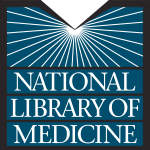- Industry: Library & information science
- Number of terms: 152252
- Number of blossaries: 0
- Company Profile:
The National Library of Medicine (NLM), on the campus of the National Institutes of Health in Bethesda, Maryland, is the world's largest medical library. The Library collects materials and provides information and research services in all areas of biomedicine and health care.
Pertaining to the stomach and intestinal tract. Gastrointestinal (GI) symptoms, such as nausea, vomiting, and diarrhea, may be caused by HIV infection, opportunistic infections, or some antiretroviral (ARV) drugs.
Industry:Health care
Physical wasting (loss of body weight and muscle mass) frequently associated with chronic disease, such as cancer or AIDS.
Industry:Health care
Physical, chemical, and microscopic examination of urine. Urinalysis can detect a specific substance, such as glucose or blood, in the urine—this can be helpful in diagnosing a disease or monitoring the body's response to treatment.
Industry:Health care
Poisonous to the blood and to the organs and tissues involved in the production of blood, such as the bone marrow.
Industry:Health care
Precursor to a nucleotide. The body converts nucleosides into nucleotides, which are then used to make nucleic acids.
Industry:Health care
Preliminary testing of an investigational drug (or other intervention) in laboratory animals. Preclinical studies are used to determine a drug’s effects and safety in laboratory animals before Phase I clinical trials in humans can begin.
Industry:Health care
Preventing or reducing a hypersensitivity reaction to a drug by gradually increasing the dose of the drug.
Industry:Health care
Progressive loss of bone mass and bone mineral density, resulting in an increased risk of fractures. Osteoporosis frequently develops in people taking antiretroviral (ARV) drugs; however, the association between ARV drugs and osteoporosis is unclear.
Industry:Health care
